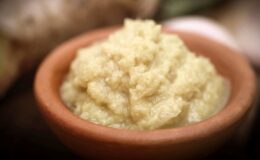

The postpartum period is a crucial phase where the mother recuperates from the physiological changes experienced during pregnancy and begins lactation. Nutrition in this phase is vital not only for the mother’s recovery but also for the optimal quality and quantity of breast milk, which is essential for the baby’s growth and development.
During pregnancy, a mother’s body utilizes numerous micro and macro nutrients. Postpartum, these reserves need replenishment. Additionally, considering that breastfeeding mothers typically produce about 700-750 ml of milk daily, it’s important to acknowledge that the mother’s energy and fluid requirements increase. In this period, approximately 500 kcal of additional energy per day is needed, alongside an average of 2.5-3 liters of fluid, and essential nutrients like iron, calcium, folate, B12, vitamin D, and omega-3.
In the first six months following childbirth, embarking on a weight loss diet is generally discouraged due to the heightened energy needs and natural calorie expenditure through breastfeeding. Restrictive diets during this period can delay the mother’s recovery and adversely impact milk production. Instead, a healthy, balanced, and varied nutrition plan should be adopted, with weight control as a long-term objective.
Emotional health is a significant aspect during this period. Nutrition influences not just physical but also psychological well-being. Particularly, omega-3, vitamin B, and magnesium intake can lower the risk of postpartum depression.
In this phase, the mother’s diet directly impacts not only her health but also her baby’s early development. Thus, postpartum nutrition plans should be customized to suit the mother’s lifestyle, health status, and breastfeeding journey. Engaging with expert support when necessary is advisable. A healthy postpartum period is achievable with informed and conscious nutritional choices.
SİGORTA
8 saat önceSİGORTA
8 saat önceSİGORTA
13 saat önceSİGORTA
2 gün önceSİGORTA
2 gün önceBİLGİ
5 gün önceSİGORTA
6 gün önceSİGORTA
8 gün önceSİGORTA
13 gün önceSİGORTA
16 gün önce 1
DJI Mini 5: A Leap Forward in Drone Technology
20196 kez okundu
1
DJI Mini 5: A Leap Forward in Drone Technology
20196 kez okundu
 2
xAI’s Grok Chatbot Introduces Memory Feature to Rival ChatGPT and Google Gemini
14209 kez okundu
2
xAI’s Grok Chatbot Introduces Memory Feature to Rival ChatGPT and Google Gemini
14209 kez okundu
 3
7 Essential Foods for Optimal Brain Health
13051 kez okundu
3
7 Essential Foods for Optimal Brain Health
13051 kez okundu
 4
Elon Musk’s Father: “Admiring Putin is Only Natural”
12907 kez okundu
4
Elon Musk’s Father: “Admiring Putin is Only Natural”
12907 kez okundu
 5
Minnesota’s Proposed Lifeline Auto Insurance Program
10771 kez okundu
5
Minnesota’s Proposed Lifeline Auto Insurance Program
10771 kez okundu
Sigorta Güncel Sigorta Şikayet Güvence Haber Hasar Onarım Insurance News Ajans Sigorta Sigorta Kampanya Sigorta Ajansı Sigorta Sondakika Insurance News